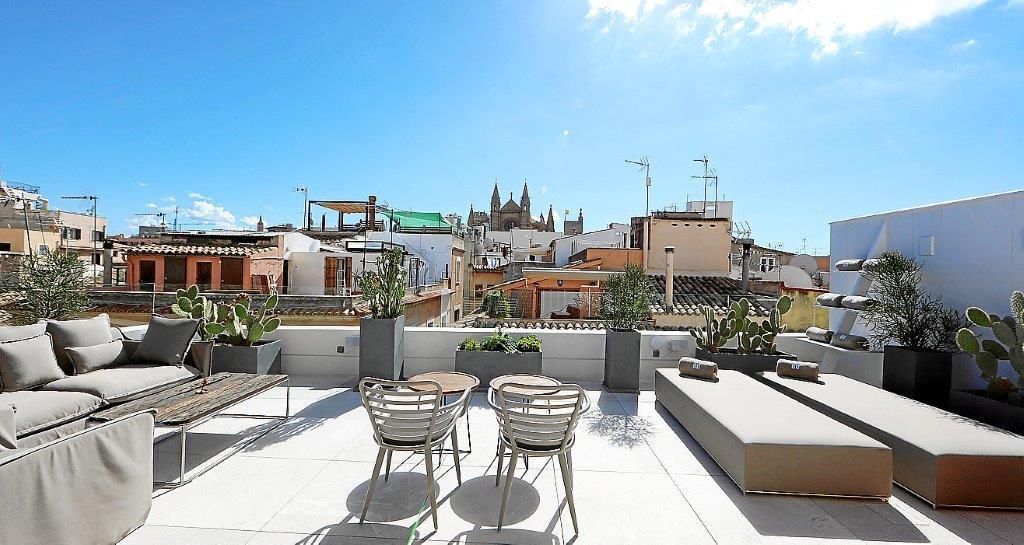Palma town hall's urban planning department has suspended the issuing of licences for tourist accommodation for a year. The suspension relates to hotels, hostels and any other type of accommodation for tourist use and applies to areas of the city that are under the greatest pressure.
José Hila, the former mayor who is now councillor for urban planning, has explained that the measure will be used to control the old centre of the city, Santa Catalina, Eixample and Nou Llevant. The reasons for a suspension in the old centre are "obvious", he noted. In Santa Catalina, there is particularly significant pressure. Eixample is a natural area, while in Nou Llevant the town hall recognises that it is an area for development that it wants to reserve for housing and business innovation.
Boutique hotels will fall outside this moratorium so long as they meet certain specifications for a licence. The building will have to be a protected one. There will be a limit of 20 rooms, and the hotel will have to be five star. Hila said that the town hall doesn't want to put a stop to boutique hotels because they represent a quality offer, in particular if they are in protected buildings.
Hila added that the reason for the suspension is that there are currently 63 requests in the pipeline at the tourism ministry and town hall. These involve almost 2,200 places, which would more than double the existing 2,149 in 38 establishments. The moratorium won't affect requests that are being processed: only new ones. He identified holiday rentals in the form of interior tourism as the main target of the moratorium. This type of accommodation in effect creates lets but is registered as interior tourism (a specific category of hotel).
Over the twelve months of the moratorium, the whole model of tourism is to be rethought in order to lessen the pressures, to guarantee a right to housing and to ensure sustainable tourism activity. Hila observed that the town hall will also be taking advantage of the zoning proposal in the holiday rentals' legislation.
The former mayor believes that the moratorium is reasonable and will give the town hall the time to discuss the future tourism model with different groups, such as residents. Antoni Noguera, now the mayor, observed that Palma is a successful city but that it cannot be allowed to die because of its success.
He emphasised the fact that responsibility needs to be shared by the public authority, residents, hoteliers and business. To go from 38 to 101 establishments in such a short period of time shows the current dynamic in Palma tourist demand, but this increase brings an obligation to regulate and plan. The new model for tourism will be one of the most important initiatives to be undertaken by the current administration and one to ensure that tourists who come to Palma will have a good experience.
Reaction to the moratorium has, generally speaking, been negative. The federation of residents' associations, a strong critic of tourist growth in the city, was alone in expressing its support, saying that it was an important step in tacking "saturation". But the Partido Popular, Ciudadanos and El Pi (all in opposition) voiced their disagreements. The PP regretted that there had been a lack of consultation, the C's accused Hila of authoritarianism and El Pl argued that the moratorium will be negative for the city.
The hoteliers, via the Majorca Hoteliers Federation and the Palma association, described the move as "precipitous" but accepted that there is a need to control holiday rentals, which are provoking the "saturation" in the city. Javier Vich, the president of the Palma association, said that he trusted that the hoteliers will be involved in discussions regarding the new sustainable model of tourism.


No comments
To be able to write a comment, you have to be registered and logged in
Currently there are no comments.